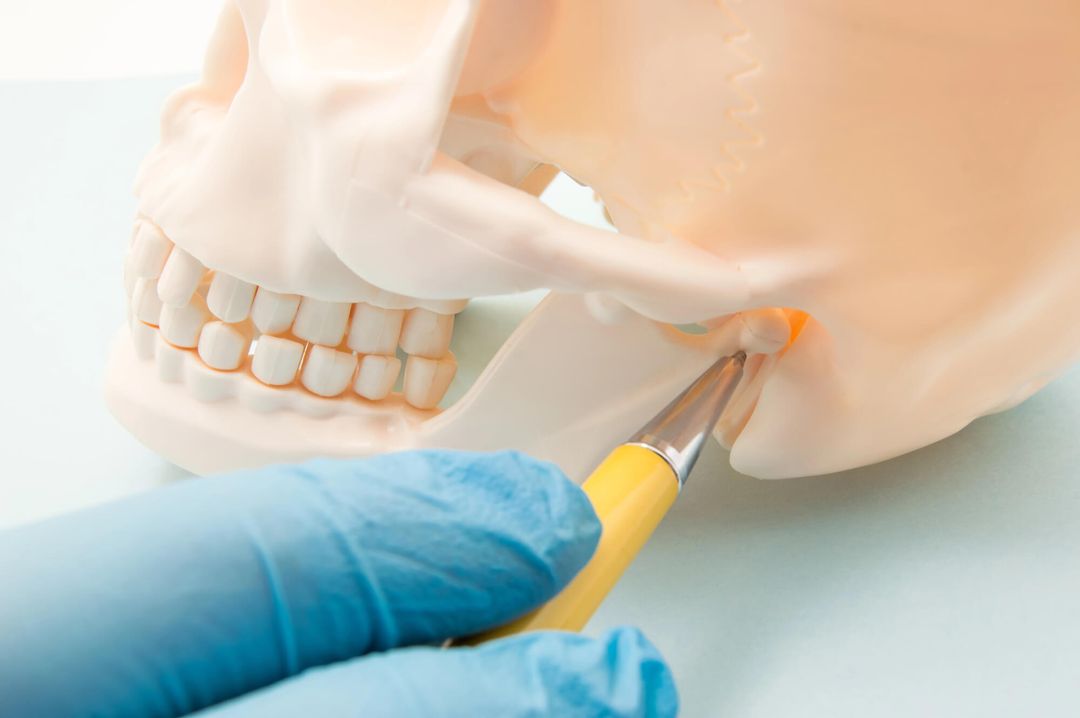
By Thrive Family Dentistry of Auburn | August 20, 2024
Temporomandibular Joint (TMJ) disorders affect the jaw joint and the surrounding muscles. These illnesses may be quite uncomfortable and interfere with day-to-day activities. Knowing when TMJ treatment is necessary can help alleviate pain and restore normal function.
This blog will cover the signs that indicate you may need professional treatment, the various treatment options, and how to decide if it’s the right time for you to seek help.
Recognizing the Symptoms of TMJ Disorders
There are several ways that TMJ issues can manifest, making it crucial to identify symptoms early. Here are common signs that may indicate a need for a professional treatment:
- Jaw Pain: Persistent pain in the jaw, especially when chewing or opening the mouth wide, can be a sign of TMJ disorder. This pain might be sharp, dull, or throbbing and can range from mild to severe.
- Clicking or Popping: Many people with TMJ disorders experience clicking, popping, or grinding noises when moving their jaws. These sounds often occur when opening or closing the mouth, and while they might not always be painful, they can be a sign of joint dysfunction.
- Limited Jaw Movement: Difficulty opening the mouth fully or experiencing stiffness can indicate a problem with the TMJ. You may notice that you can’t open your mouth as wide as you used to or that your jaw feels locked or stuck.
- Headaches: Frequent headaches or migraines, particularly those that seem linked to jaw movement or muscle tension, can be related to TMJ disorders. These headaches can be quite debilitating and may occur regularly.
- Earaches: Pain or discomfort in the ears without an obvious ear infection may be caused by TMJ issues. The pain might mimic an ear infection or feel like pressure in the ears.
When to Seek TMJ Treatment?
Deciding when to seek treatment depends on the impact of symptoms on your daily life and their duration. Here are situations when treatment should be considered:
- Chronic Pain: If jaw pain persists for more than a few weeks despite home remedies, it may be time to seek professional help. Chronic pain can interfere with eating, speaking, and even sleeping.
- Severe Discomfort: When pain interferes with your ability to eat, speak, or sleep comfortably, it’s a clear sign that professional treatment might be needed. Severe discomfort that affects your quality of life should not be ignored.
- Progressive Symptoms: If symptoms like jaw clicking or popping worsen over time, it’s important to get evaluated. Progressive symptoms often indicate that the underlying issue is becoming more severe and requires attention.
- Ineffective Self-Care: When over-the-counter pain relievers and self-care measures like warm compresses or gentle stretches are not providing relief, it’s time to consult a healthcare professional. Persistent symptoms that don’t improve with self-care should be assessed by a specialist.
In case your symptoms are severe or negatively affecting your quality of life, it is crucial to get advice from a healthcare professional. Early intervention can help control the illness more successfully and stop additional complications.
Common TMJ Treatment Options
There are various TMJ care options available, ranging from conservative approaches to more advanced interventions. Here are some common treatments:
Medication:
Over-the-counter pain relievers, anti-inflammatory drugs, or muscle relaxants can help reduce pain and inflammation. In some cases, prescription medications may be necessary for more severe symptoms.
Physical Therapy:
Physical therapy involves exercises to strengthen and stretch the jaw muscles, improve jaw movement, and reduce pain. Therapists may also use techniques like massage or ultrasound therapy to alleviate discomfort.
Dental Appliances:
Custom-made mouthguards or splints, also known as occlusal splints, can help reduce jaw strain and prevent teeth grinding. These devices are typically worn at night to protect the teeth and reduce muscle tension.
Stress Management:
Stress can exacerbate TMJ symptoms, so techniques like relaxation exercises, mindfulness, or counseling to address stress can be beneficial. Learning to manage stress effectively can reduce the frequency and severity of symptoms.
Surgical Options:
Surgical intervention may be required in extreme situations to repair or replace the joint. From minimally invasive arthroscopy to more involved procedures, surgeries can be of many types, depending on the severity of the TMJ disorder.
Consulting a healthcare provider about these alternatives can help identify the most appropriate treatment for your specific condition. After evaluating your symptoms, they will recommend the most effective course of action based on your needs.
TMJ treatment is essential when symptoms interfere with your daily life or cause significant discomfort. By recognizing the signs of TMJ disorders and considering treatment options, you can take proactive steps to address the condition.
If you’re experiencing persistent symptoms or finding that self-care measures are insufficient, it may be time to seriously consider seeking professional treatment. Indeed, early intervention can significantly aid effective condition management and restore your quality of life. Therefore, consulting with a specialist will ensure you receive the necessary care and relief from TMJ-related issues.
Frequently Asked Questions
The duration required to see improvement from TMJ treatment varies depending on the severity of the disorder and the type of treatment used. For medications and physical therapy, noticeable improvement may occur within a few weeks to a few months. Dental appliances often provide relief within days, though full benefits may take several weeks to manifest. In cases where surgery is required, recovery time can range from a few weeks to several months, depending on the complexity of the procedure and individual healing responses.
Yes, certain lifestyle changes can aid in managing TMJ symptoms. For instance, avoiding hard foods and opting for softer alternatives can reduce strain on the jaw. Examples of relaxation techniques are deep breathing exercises and meditation strategies that might help reduce stress and prevent teeth grinding. Maintaining good posture is also beneficial, as poor posture can contribute to jaw discomfort. Pain and swelling in the affected area may be momentarily reduced by applying heat or cold packs.
Finding a qualified TMJ specialist involves several steps. Consult your general dentist for advice first. who may refer you to an experienced specialist. Additionally, you can look up healthcare providers who focus on TMJ disorders or oral and maxillofacial specialists with expertise in treating jaw joint issues. Checking professional credentials, including board certifications and affiliations with relevant medical associations, can also help ensure you are choosing a qualified specialist. Reading patient reviews and scheduling consultations can provide additional insights into a provider’s suitability for your needs.


